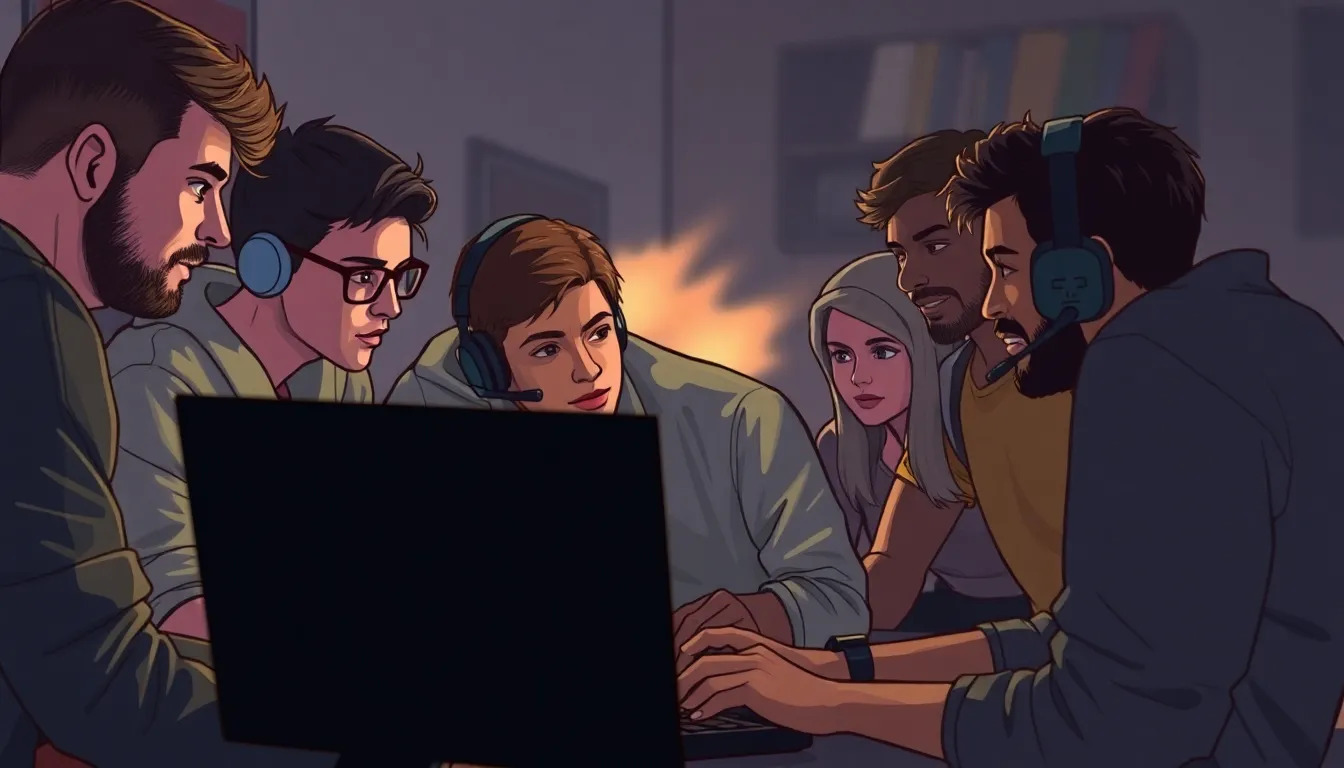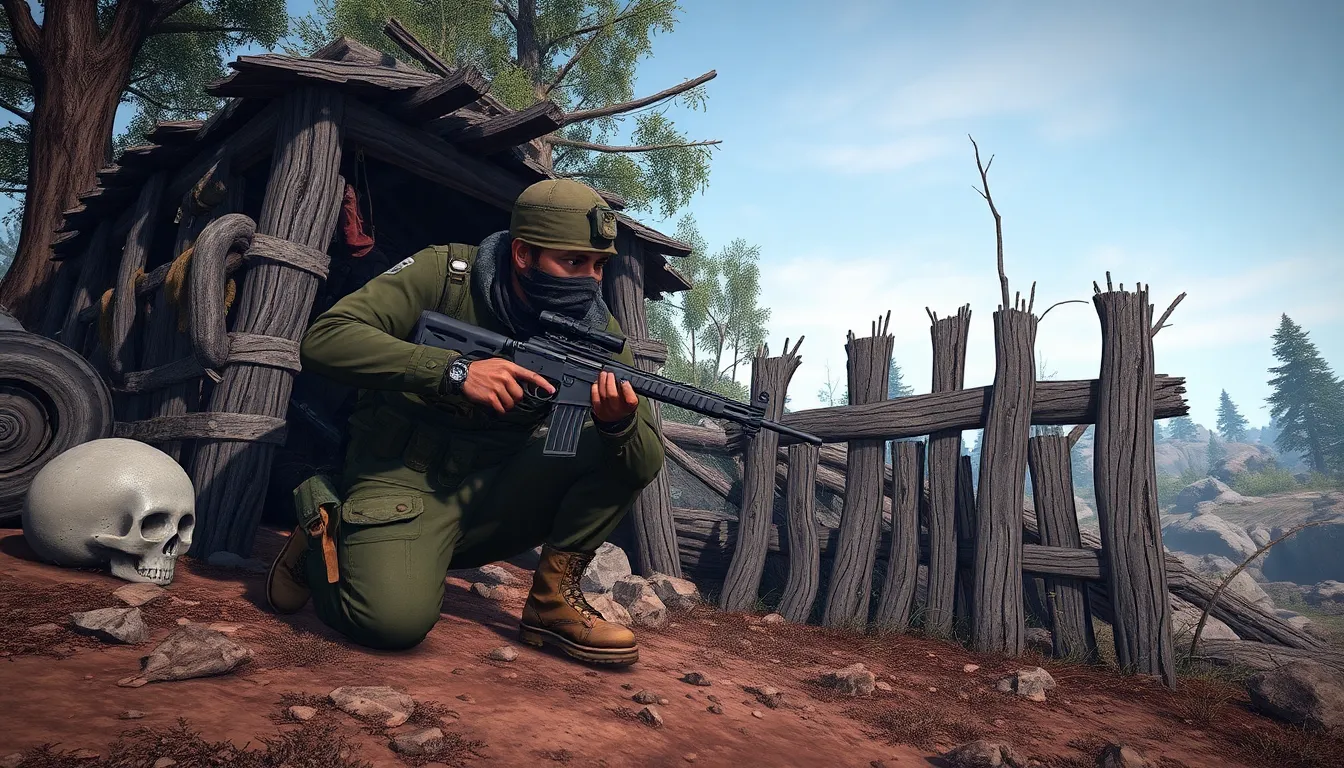Table of Contents
ToggleIn the chaotic world of Rust, survival isn’t just about gathering resources and building a fortress; it’s also about dodging the virtual landmines of griefers. These players thrive on chaos, turning your hard-earned progress into pixelated dust faster than you can say “raid.” Whether it’s a sneaky ambush or a well-timed explosion, griefing can turn your serene gaming session into a hilarious disaster.
Understanding Rust Griefing
Griefing in Rust disrupts gameplay for others, leading to unexpected and chaotic moments. It’s essential to recognize its various forms and impacts on player experiences.
Definition of Griefing
Griefing refers to the act of intentionally causing frustration or harm to other players. This behavior can manifest through sabotage, harassment, or destruction of in-game assets. Players engaging in griefing often seek amusement at others’ expense, transforming a collaborative survival game into a battleground of unpredictability. Understanding griefing helps players develop strategies to mitigate its negative effects and maintain a more enjoyable gaming environment.
Types of Griefing in Rust
Several types of griefing exist within Rust, each affecting gameplay differently. Ambushes occur when players lie in wait for unsuspecting victims, creating a sudden and stressful encounter. Raiding involves breaking into another player’s base to steal their resources, infringing on their hard-earned progress. Building destruction takes place when griefers demolish structures for no reason, leading to loss of defense or shelter. Explosive traps are deployed to harm or kill players who trigger them, further enhancing the sense of chaos. Recognizing these types allows players to better prepare and respond to potential threats.
Impact of Griefing on Players

Griefing significantly affects players’ experiences in Rust. Understanding these impacts is essential for creating a healthier gaming environment.
Psychological Effects on Victims
Griefers often induce stress and frustration in their victims. Players frequently feel demoralized after repeated losses due to sabotage or harassment. Emotional responses can include anger and sadness, which may discourage individuals from continuing to play. Some players even report feeling isolated, as griefing disrupts community interactions and leads to distrust. Anxiety can result from the constant threat of ambushes or unwanted raids. Overall, these psychological impacts can diminish enjoyment, prompting players to rethink their engagement with the game.
Community Reactions
Communities often respond to griefing through various means. Many players create groups to strategize ways to counteract griefers, fostering collaboration. Some communities advocate for reporting mechanisms to address toxic behavior, promoting a better gaming culture. Discussion forums become platforms for sharing experiences and tips on preventing griefing. Players sometimes develop informal codes of conduct that emphasize respect and support among each other. Such collective actions highlight a shared commitment to maintaining a positive atmosphere while navigating the challenges posed by griefing.
Strategies to Combat Griefing
Players face numerous tactics to counter griefing in Rust, focusing on protective structures and collaborative strategies. Implementing effective measures can significantly enhance one’s gaming experience.
Building Protective Structures
Creating secure bases serves as a fundamental strategy against griefing. Players should prioritize building walls and gates using high-tier materials to withstand attacks. Roofs enhance defense by obstructing aerial assaults. Incorporating traps at entry points deters unwanted visitors. Utilizing hidden compartments for valuable items protects essential resources. Strengthening bases increases resilience against ambushes and raiding attempts.
Collaborative Player Strategies
Joining forces with other players provides a robust defense against griefers. Forming alliances fosters resource sharing and improves base security through group patrols. Communicating regularly enhances situational awareness, allowing teams to respond swiftly to threats. Organizing raids on suspected griefers can deter malicious players. Establishing a dedicated reporting system further assists in identifying and penalizing griefers within the community. Collaboration leads to a more enjoyable and secure gaming environment.
Tools and Reporting Mechanisms
Players can utilize various tools and reporting mechanisms to combat griefing in Rust. Effective reporting can significantly enhance the gaming experience for everyone involved.
In-Game Reporting Features
Rust offers players in-game reporting features that streamline the process of reporting griefers. Utilizing the F7 key allows players to submit reports directly during gameplay. Players can specify the type of offense when reporting, which helps developers investigate incidents efficiently. Automated systems assess reported players, applying penalties where necessary. Enhancements in these tools assist in maintaining a fair gaming environment by encouraging accountability among players.
External Tools and Communities
Numerous external tools and communities exist to support players in handling griefing situations. Platforms such as Discord host channels dedicated to reporting and discussing grievances. Players often share experiences, strategies, and support each other in these forums. Tools like anti-cheat software also provide protection against malicious behaviors in Rust. Engaging with these external resources allows players to stay informed and collaborate effectively, fostering a resilient gaming community.
Griefing in Rust presents a unique set of challenges that can significantly impact players’ experiences. By understanding the various forms of griefing and their psychological effects, players can better prepare themselves to navigate the game’s complexities. Employing strategies such as building secure bases and forming alliances can mitigate the risks associated with griefers.
Additionally, utilizing reporting tools and engaging with the community fosters a supportive environment where players can share experiences and strategies. Ultimately, a proactive approach to griefing not only enhances individual gameplay but also contributes to a healthier gaming community. Embracing these tactics ensures that players can enjoy the thrill of survival in Rust while minimizing disruptions caused by griefers.










